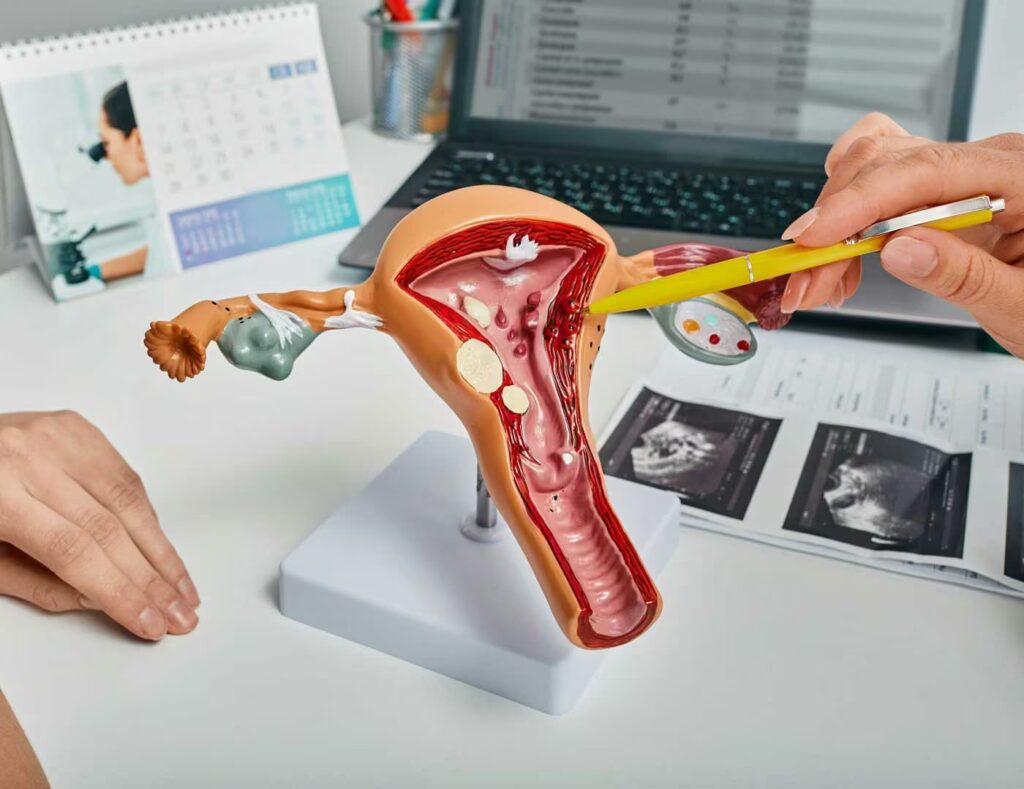
Female Pelvic Health Physiotherapy in Doncaster to Help You Live Confidently Again
Transformative help for females in Doncaster and surrounding area for those real personal and intimate issues. We can help with your bladder and bowel leakage, pelvic pain, pain with sexual intercourse, vaginismus, vulvodynia, pelvic organ prolapse.
We are also experts in helping females through the pregnancy process with pelvic girdle pain, birth preparation, recovery and return to sport, diastasis recti (tummy gap) and following a caesarean section.
The National Institute For Health And Care Excellence (NICE) https://www.nice.org.uk/ cites female pelvic health physiotherapy as first line interventions for many female pelvic health issues such as bladder and bowel incontinence, pelvic organ prolapse, pregnancy related pelvic girdle pain.
Female Pelvic Health Physiotherapy at Blizard Physiotherapy
Specialist care in a safe, supportive, and confidential environment
At Blizard Physiotherapy, we understand that attending a female pelvic health appointment can feel very personal. Many women feel unsure about what will happen or worry about feeling exposed or uncomfortable. Our priority is to ensure you feel safe, respected, supported, and fully informed from the moment you arrive.
Our specialist female pelvic health physiotherapists are highly trained in this area and are committed to providing compassionate, professional care in a calm and private setting.
Your privacy and comfort always come first
Your appointment takes place in a private treatment room with a female pelvic health physiotherapist. Everything discussed and assessed is completely confidential. We take time to explain each step of the process and will never proceed without your clear consent.
You are not alone
Pelvic health concerns are common and treatable. Our specialist physiotherapists work with women at all stages of life and approach every appointment with professionalism, empathy, and care.
We want you to leave your first appointment feeling reassured, supported, and confident that you are in safe hands.
If you have any questions before your appointment, our friendly team is always happy to help.

What Does This Service Cover?
Pre(Ante)natal
Postnatal
A Specialist Postpartum Assessment Is Recommended For All Females Following Delivery
Pelvic floor weakness
Overactive Pelvic Floor Muscles
Diastasis Rectus Abdominis (tummy gap)
Bladder problems
Chronic Pelvic Pain
Pelvic Girdle Pain (PGP)
Coccyx pain
Dyspareunia/Vaginismus (painful intercourse)
Vulvodynia (pain in the vulva region)
Overactive Bladder Syndrome)
Recovery from abdominal or pelvic surgery

Why Book With Blizard?
Our female pelvic health physiotherapists (also referred to as women’s health physiotherapists) have undergone further specialist post graduate training to be able to help females with conditions relating to the pelvic area and support females through the different stages of life such as pre, peri and post menopause, the peri-natal (pregnancy cycle) period and overall musculoskeletal health. They must have trained to a specialist standard and continue to keep updating their knowledge to be a member of the POGP.
We offer a free consultation which gives you the opportunity to ask any questions and explore whether female pelvic health physiotherapy is the right choice for you.
Meet the team

The POGP

Squeezy App
Female Pelvic Health Physiotherapy Appointment
What To Expect
Prior to your appointment you will be asked to complete two comprehensive questionnaires which ask you detailed questions about the reason for seeking help and what your GOAL is. This will help your physiotherapist plan the assessment. It is important that you complete the questionnaires comprehensively and as soon as possible so we can ensure the appointment is right for you. The questionnaires are secure documents that can ONLY be viewed by the treating physiotherapist.
Depending on what your concerns/problems are it is likely we will assess your movements (for example how your perform certain activities), abdominal muscles, muscle strength. This assessment is individual to what each client needs, there is no one set “recipe”.
If your problems are related to your pelvic floor, an internal vaginal or rectal examination is often advised to assess your pelvic floor function, this can be completed at the first appointment or at a subsequent appointment. You will be taken through what it involves and why it is advisable. You can read more about a pelvic floor examination here. We also use real time ultrasound scanning (click here to read more) to assess the pelvic floor, bladder, and abdominal muscles including diastasis recti. After the assessment your physiotherapist may continue with treatment (depending on time available), this may comprise of:
- Manual “hands on” treatment
- Acupuncture
- Advice and education
- Home exercise program (via an app/email with videos)
Often the treatment provided blends with the assessment process to see how your body/tissues respond so that an appropriate discussion of the findings and what the potential plan going forward might be.
Finally your physiotherapist will discuss with you the findings and plan further assessment/treatment and rehabilitation with you. If you require help from another professional, this will also be discussed with you.
How many sessions will I need?
The length of time and number of sessions you will require is very varied. Some females may only require 2to3 sessions, others may require two sessions per week for a short period, finally some females may be seen sporadically over a year to 18 months. Your physiotherapist will discuss a treatment plan with you at your first appointment.
The aim is to ensure that you have been assessed and treated completely or have an ongoing plan in place for an expected completion of your goal. This may take place over a few weeks or few months dependent on the nature of the issue you require help with.
The initial 60 minute session includes an assessment, discussion of the findings and treatment plan (where required). Any exercises you are provided with include videos and detailed instructions sent via email and can also be viewed in a secure app. For further information about the app go to https://www.physiapp.com/.
Chaperone
Privacy
We understand the highly sensitive nature of many of the conditions that women may have. All our clinic rooms are private and all information kept is strictly confidential. Only the treating physiotherapist has access to your treatment notes.
Questions
If you do have any questions then please get in touch with the clinic on 01302511755 or send Jenny an email to her private account which is [email protected] or email [email protected].
Pelvic Floor Assessment
What does this involve?
You do not have to have this examination, and you have the right to change your mind at any point during the examination.
Female pelvic health physiotherapists look at how the muscles, joints and nerves work and interact. For this reason we don’t use medical equipment and will often examine muscles both externally and internally (manually using a finger). The pelvic floor is extremely complicated and needs thorough assessment so that treatment can be tailored to the individual’s needs.
Problems with the pelvic floor can occur when the muscles are too weak (hypotonic) too tight (hypertonic) or can be a combination of both! It is very important to determine with the pelvic floor muscles:
- Strength and endurance
- Balance between the left and right sides
- Whether the muscles can both contract and relax effectively
- The resting position and muscle tone of the pelvic floor
- Whether the anterior and posterior pelvic muscles are working appropriately
Once we have performed the necessary tests then we can establish a picture of how the findings relate to your problem and plan a treatment program based on short and longer term goals. This treatment may include a combination of exercise, manual therapy and condition related education.
In most cases we are able to perform an internal pelvic floor exam whilst pregnant and during a menstrual cycle.
